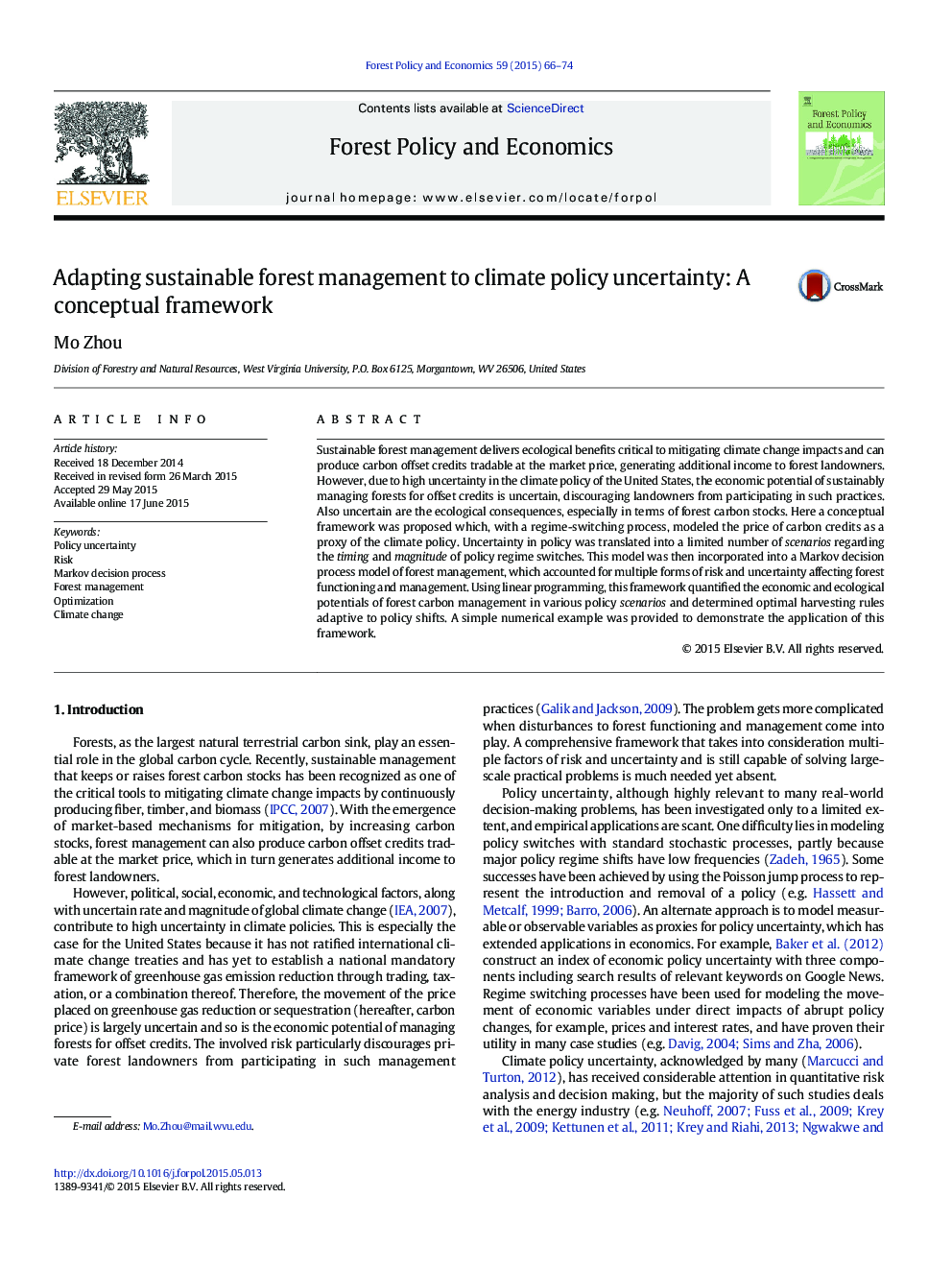| کد مقاله | کد نشریه | سال انتشار | مقاله انگلیسی | نسخه تمام متن |
|---|---|---|---|---|
| 91739 | 159839 | 2015 | 9 صفحه PDF | دانلود رایگان |
• The framework handled multiple sources of risk and uncertainty in carbon offset through sustainable management.
• The carbon price, as a proxy of climate policies, was modeled as a two-regime switching process.
• Scenarios were established to represent uncertain timing and magnitude of the regime switch.
• The policy model was incorporated into a Markov forest management model to quantify economic potentials and impacts on carbon storage.
Sustainable forest management delivers ecological benefits critical to mitigating climate change impacts and can produce carbon offset credits tradable at the market price, generating additional income to forest landowners. However, due to high uncertainty in the climate policy of the United States, the economic potential of sustainably managing forests for offset credits is uncertain, discouraging landowners from participating in such practices. Also uncertain are the ecological consequences, especially in terms of forest carbon stocks. Here a conceptual framework was proposed which, with a regime-switching process, modeled the price of carbon credits as a proxy of the climate policy. Uncertainty in policy was translated into a limited number of scenarios regarding the timing and magnitude of policy regime switches. This model was then incorporated into a Markov decision process model of forest management, which accounted for multiple forms of risk and uncertainty affecting forest functioning and management. Using linear programming, this framework quantified the economic and ecological potentials of forest carbon management in various policy scenarios and determined optimal harvesting rules adaptive to policy shifts. A simple numerical example was provided to demonstrate the application of this framework.
Journal: Forest Policy and Economics - Volume 59, October 2015, Pages 66–74
